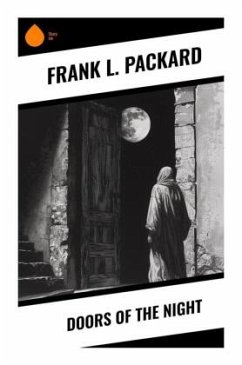In "Doors of the Night," Frank L. Packard masterfully weaves a narrative that delves into the complexities of the human psyche against a backdrop of mystery and suspense. Characterized by its vivid imagery and gripping prose, the novel explores themes of fear, ambition, and the interplay between light and darkness. Packard employs a cinematic style, effectively constructing tension through skillful pacing and intricately layered plot twists, drawing readers into a world where the boundaries of reality and illusion blur. This work reflects the literary trends of the early 20th century, particularly the growing fascination with psychological depth and character-driven narratives. Frank L. Packard, an influential figure in early American fiction, was born in 1877 and experienced a diverse range of careers, from journalist to screenwriter. His extensive knowledge of crime and human behavior-shaped by his own life experiences and observations of urban life-fostered a rich understanding of the darker corners of humanity. "Doors of the Night" serves as a testament to his ability to amplify the tensions of the era, resonating with the readers' own fears and aspirations. This compelling novel is highly recommended for those interested in early 20th-century literature, psychological thrillers, or the exploration of human nature's darker aspects. Packard's intriguing narrative not only captivates but also encourages reflective thought on the human condition, making it a worthwhile addition to any literary collection.
Bitte wählen Sie Ihr Anliegen aus.
Rechnungen
Retourenschein anfordern
Bestellstatus
Storno








